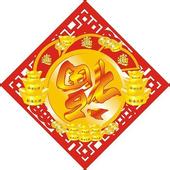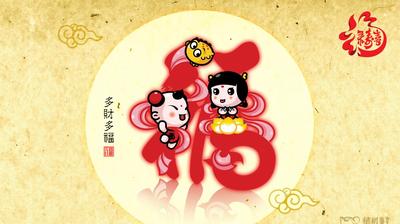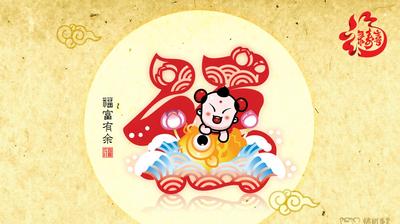Where does the upside down “fu” come from?
by Tian Danyang
(Harbin, China)



Have you ever noticed the phenomenon that Chinese people will hang a big character “fu” (福) on the door? It reflects both the peculiarities of ancient emperors and modern customs about the issues of how empires in the past deal with their secrets and how this phenomenon evolved to a lucky symbol nowadays.
In ancient China, there is no such custom in relation to the upside down character “fu” on the door of each house during the Spring Festival.
It reminds me of an old wise story about the emperor Zhu Yuanzhang who would kill one person for he knew too many secrets about the royal court. The assassin was going to kill that person with the indication of a character “fu” hung on his door.
The wife of the emperor, empress Ma, who had a kind heart, could not bear to kill people and she worried that the insistence of their killing people would lead to broad and severe repercussions.
In order for his husband to save one life, she gave everyone the order to hang on a character “fu” as same as the assassin’s. Interestingly, one house hung the “fu” upside down by mistake. After hearing about this, Zhu Yuanzhang got furious and make the order to kill the person who hung the “fu” upside down.
Then the empress said it had an interesting meaning “fudao”(福倒) which has the same Chinese pronunciation with that of “luck was on my side.” The Emperor was happy to hear that and released that person.
After being spread and modified, this upside down character “fu” has become a traditional custom during the spring festival. People use this way to pray for auspiciousness dedicated to the memory of the kind and notable empress Ma.
|